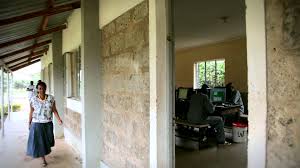Government Grants
Business Grants
Home Owner Programs
Federal Programs
About Us
Correctional Case Management for Jails Training
In many jails, there is no standardized file where information about person’s behavior is chronologically and categorically maintained while that person is in an institution.
Most jails maintain a file for court and legal information and a medical file for medical and mental health information,
but they do not maintain a file with a person’s social and behavioral information.
Social and behavioral information can often be maintained in separate classification, housing, disciplinary, grievance, programs, and security files.Correctional case management is an alternative to having an incarcerated person’s information spread among different offices in a jail.
Correctional case management gives correctional staff the means to intervene on behalf of a person using a standard language, file structure, agency forms, documentation, and file maintenance.
A case management file (also known as a classification or program file) is a social file that tells the story about a person’s stay.Typically, when a person is admitted into a jail, there are a series of actions that the person must progress through, such as security and property checks, booking, a medical interview, orientation, and classification (security rating and housing assignment).
There are also additional actions that a person may experience or progress through depending on the operational structure and programmatic offerings of a jail.
Orientation, classification, and institutional behaviors are the focus of Correctional Case Management for Jails.
Most jails maintain a file for court and legal information and a medical file for medical and mental health information,
but they do not maintain a file with a person’s social and behavioral information.
Social and behavioral information can often be maintained in separate classification, housing, disciplinary, grievance, programs, and security files.Correctional case management is an alternative to having an incarcerated person’s information spread among different offices in a jail.
Correctional case management gives correctional staff the means to intervene on behalf of a person using a standard language, file structure, agency forms, documentation, and file maintenance.
A case management file (also known as a classification or program file) is a social file that tells the story about a person’s stay.Typically, when a person is admitted into a jail, there are a series of actions that the person must progress through, such as security and property checks, booking, a medical interview, orientation, and classification (security rating and housing assignment).
There are also additional actions that a person may experience or progress through depending on the operational structure and programmatic offerings of a jail.
Orientation, classification, and institutional behaviors are the focus of Correctional Case Management for Jails.
Who's Eligible
Obtain Full Opportunity Text:
NIC Website
Additional Information of Eligibility:
NIC invites applications from nonprofit organizations (including faith-based, community, and tribal organizations), for-profit organizations (including tribal for-profit organizations), and institutions of higher education (including tribal institutions of higher education).
Recipients, including for-profit organizations, must agree to waive any profit or fee for services.
Foreign governments, international organizations, and non-governmental international organizations/institutions are not eligible to apply.
Proof of 501(c) (3) status as determined by the Internal Revenue Service or an authorizing tribal resolution is required.NIC welcomes applications that involve two or more entities; however, one eligible entity must be the applicant and the others must be proposed as subrecipients.
The applicant must be the entity with primary responsibility for administering the funding and managing the entire program.
Only one (1) application will be accepted from a submitting organization.
Full Opportunity Web Address:
https://nicic.gov/about-nic/funding-opportunities/correctional-case-management-jails-training
Contact:
Agency Email Description:
Form and application information
Agency Email:
Date Posted:
2023-12-13
Application Due Date:
Archive Date:
2024-03-13
Social Entrepreneurship
Spotlight
Social Enterprise Pushes Continuity of Care and Home Births

The Neighbourhood Midwives, the brainchild of Annie Francis of Hampshire, offers midwifery services geared for the continuity of care to women and their families.

